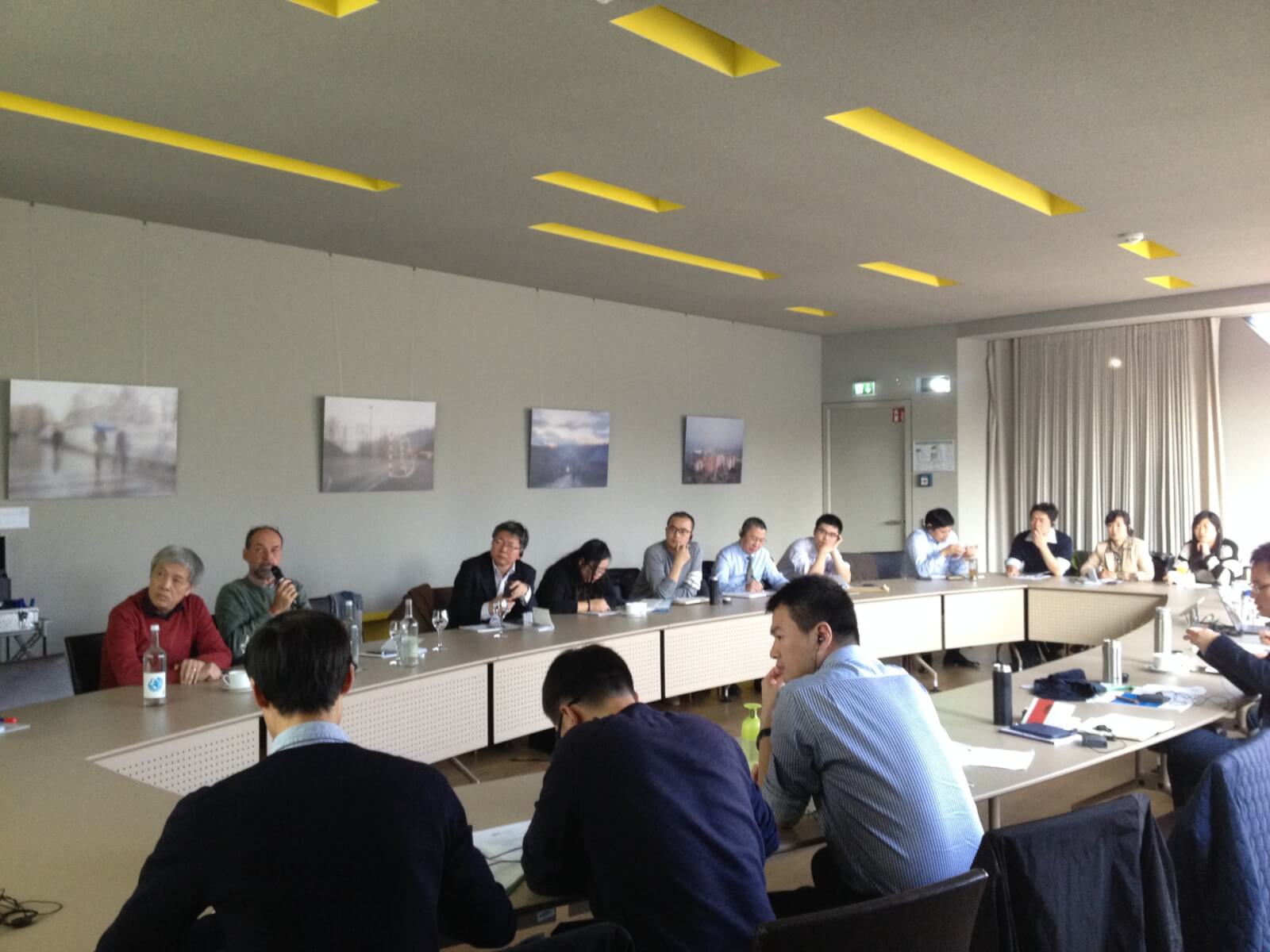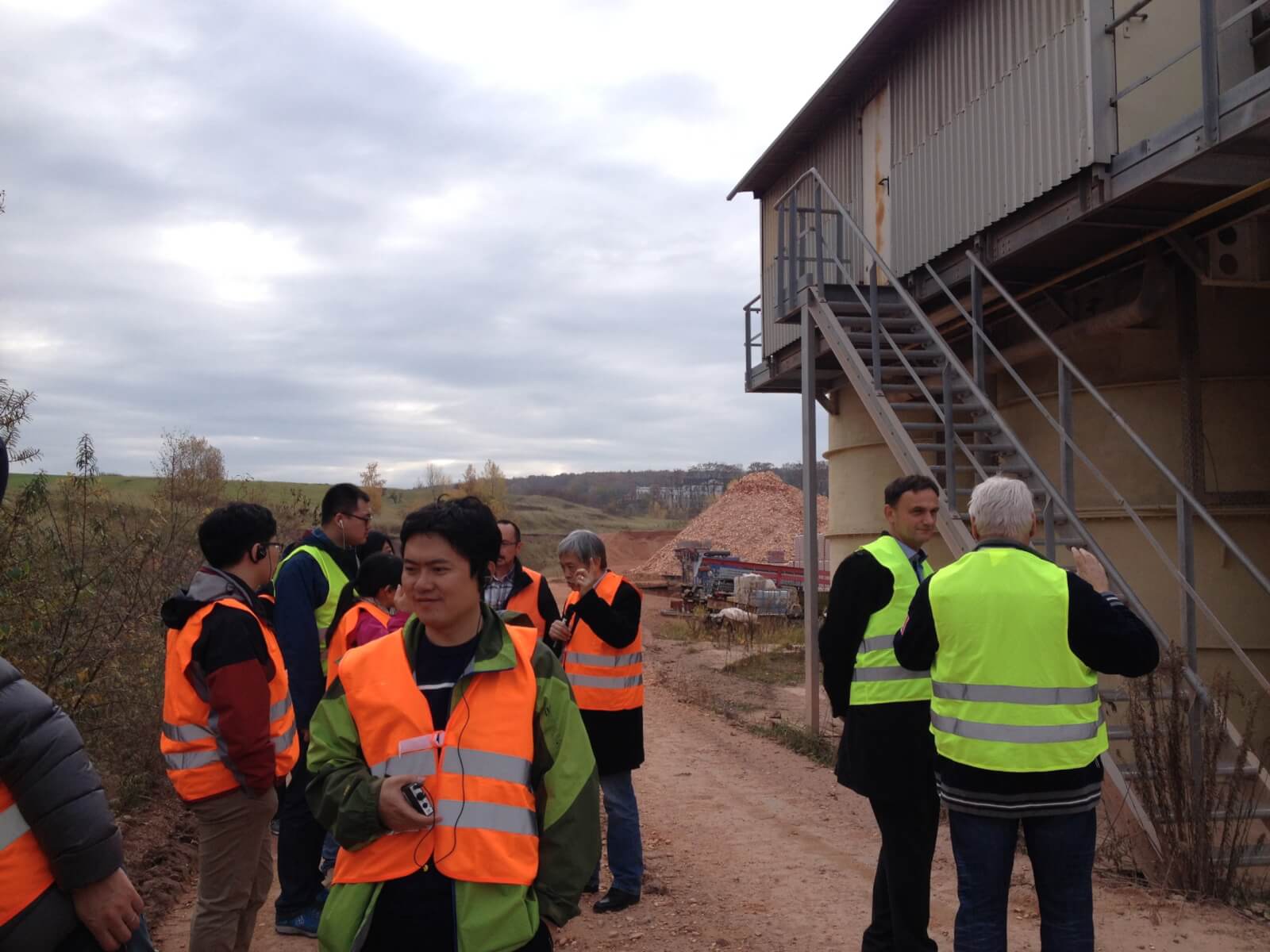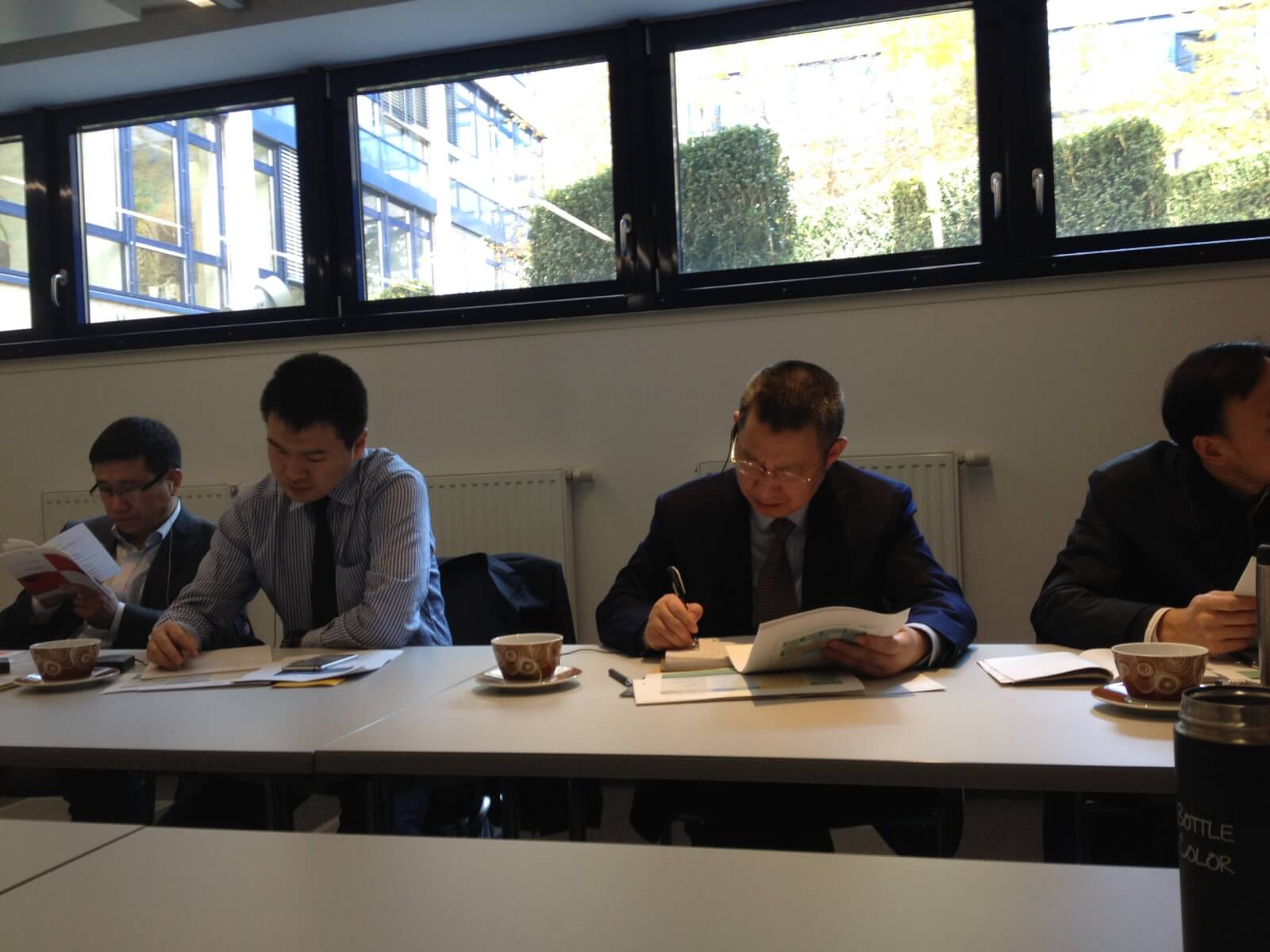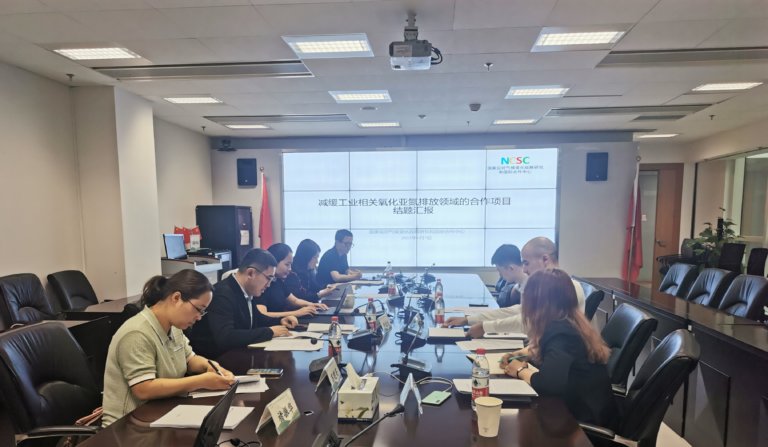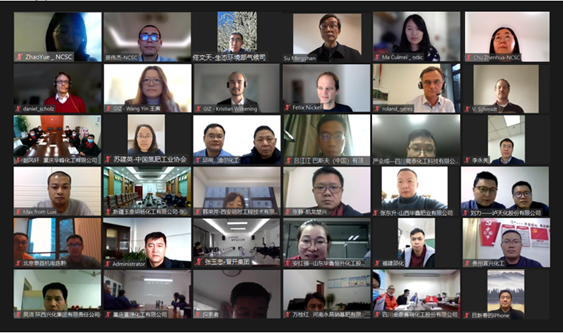Dec 28, 2015 – In recent years, China has launched seven emissions trading pilots in two provinces and five cities. Since the pilot schemes have been operational for about two years the next step is to set up a national emissions trading scheme (ETS), which is scheduled for 2017. In order to improve the capacity of affiliated Chinese officials in regards to establishing the national ETS, the Sino-German Project “Capacity Building for the establishment of emissions trading schemes (ETS) in China” organized an international training in Germany from 25th, October to 11th, November, 2015. The objective of the training was to deepen the participants’ understanding of the EU-ETS and to strengthen capacities to adapt and implement an ETS according to Chinese circumstances and necessities.
The delegation for this 18-days intensive training included officials from local Development and Reform Commissions (DRCs) and other supporting institutions under the leadership of the National Development and Reform Commission (NDRC). The 19 participants came from 17 different regions, including the highly developed provinces from the east coast like Jiangsu, Shandong and Zhejiang; provinces that rely on heavy industry and coal, like Hebei and Jilin, as well as least developed provinces of the North-West, like Ningxia and Gansu. Throughout the training participants had the chance to engage with experts from different organizations involved in the EU-ETS such as the German Federal Ministry for the Environment, Nature Conservation, Building and Nuclear Safety (BMUB), the German Emissions Trading Authority (DEHSt), the European Energy Exchange (EEX) and German think tanks.
During the study tour the delegation worked on a wide range of topics, often through interactive elements. At the BMUB and DEHSt in Berlin topics focused on the perspective of the regulator of an ETS and the basic principles and theory of emissions trading. Visiting various stakeholders involved in emissions trading, like EEX, service providers and companies the delegation also learnt about the perspective of ETS participants, the practical implementation of an ETS and the German management experience. Topics that were of special interest to the delegation included allowance allocation, MRV and lessons learnt from the European experience and participants voiced interest in follow-up events with related topics.
Organizers and Participants were highly satisfied with the outcome of the study tour. “I deeply benefited from this study tour and learned much from EU-ETS, which can be applied to the Hubei ETS in the future,” noted a participant from Hubei province. Participants especially valued the discussions and Q&A sessions. A participant from Shenyang city said “learning about the processes of emissions trading was useful for the implementation at home. For future events I would wish for some more time for Q&A sessions.”
